Description
This coffee is produced by legacy farmers of various sizes in the high mountains of Yemen’s northwestern Sa’adah Governorate, from across the Sa’adah districts of Saqayn, Haydan, Ghamr, Razih, Monabbih, and Joma’ah.
Coffee-growing families in this part of Yemen, similar to many others across the country, tend parcels of terraced land passed through many generations. Coffee is the one crop that continues to survive all others, both for the livelihood it provides as well as a being a deep social tradition that keeps communities together. “Kholani”, or “Khulani” is a term of terroir distinction, similar to “Kona”, that refers to high-quality heirloom coffee varieties produced in the unique climate and soil of Yemen’s northern ranges.
Kholani coffee is widely regarded in Yemen as one of its best and most historic. All Kholani coffee is processed as a natural: hand-picked, sorted for consistency, and dried in a single layer in full sun on raised beds or rooftops. Yemen is the oldest territory on Earth to cultivate coffee. Its seed stock, originally transported from wild arabica landraces in Ethiopia, was used to create the world’s first ever coffee farms where coffee would be grown commercially for trade across the Arabian peninsula and eventually mainland Europe. (“Arabica” itself referred to the Arabian coffee supply that was the West’s first in history.)
Tasting Notes: Classic Yemen coffee – slight fruitiness and rustic chocolate. Yemen coffees are the rare cup where you can occasionally see a “banana” like fruit tone – don’t worry though, its a little bit of a reach for banana, its not like eating a banana or banana flavored coffee, although with developed tongue, most can pick it up. Red fruit and bakers chocolate are the dominate tones – fruit is accentuated with lighter roasts, chocolaty with darker roasts. A lovely super complex old world natural.
Roasting Notes: Yemen Mocca is old world natural processed – high chaff and a bit uneven roasting. The cup profile is good from a medium to dark roast, Traditionally served on the darker side. Our favorite was a nice strong medium roast though, chocolaty factor is nice and strong but doesn’t mute all the front end jazz.
Maintaining coffee trees in a climate as dry, high, and uniquely challenging as Yemen’s western and northern ranges, requires the kind of proven techniques that only generations of farming can bestow. Coffee farms are iconically terraced on arid, incredibly steep slopes. Bore holes are dug manually into the rock to access individual water reserves for each tree wherever rain is scarce. Coffee trees are spaced generously, about 1000 per hectare (compared to 4000-6000 common in Latin America), both by necessity on the narrow terraces, as well as for better groundwater access and erosion control. Raising young coffee trees is a matter of hardening them for a lifetime of vicious elements and water scarcity. Older coffee trees become very spacious and tall, and often end up hanging their branches over the terrace edge, known locally as “hanging gardens”. Canopy trees are carefully selected and positioned for how well they block water evaporation. As can be imagined, productivity is very low in such conditions.
And still, over one million people work in Yemen’s coffee trade, from farm to export. Muslot Trading Stores, the miller and exporter of this regional blend, is an offshoot of a family business founded in 1970. For many years, all coffee was exported under the name of the family patriarch and founder, Ali Hiba Muslot. After Ali Hiba’s death in 1980 his three sons continued under the family name until 2012, when the family business, including other trades and retail, was split up. The coffee export business was split into two sibling companies, Muslot Trading Stores, headed by Abdulmajeed Ali Muslot, and Pearl of Tehama for Import, Export, and C.A.S, owned by Ms. Fatoum Muslot. Abdulmajeed and Fatoum are brother and sister.
Yemen continues to suffer from protracted conflict that has cost many lives and displaced over 3 million people. Two-thirds of the country is in need of food or medical aid. So, when new crop arrives we pause to remember and honor the coffee. What makes the quality so special is that it hinges on a relationship of trust, which has been constant for decades between Royal and the Muslot family despite many odds. Yemen’s ongoing civil war has not stopped Muslot Trading Stores from dutifully managing and exporting the coffee harvests of the farms and families they represent; something they can be very proud of given the conflict’s overwhelmingly ruinous effect on much of Yemen’s international trade. In the absence of any national infrastructure to support Yemen’s coffee, Muslot Trading Stores provides financing support to many of their farms in order to maintain stability for producers and their communities.
Variety: Audaini, Dawaery, Tuffahi
Elevation: 1500 – 2200 masl

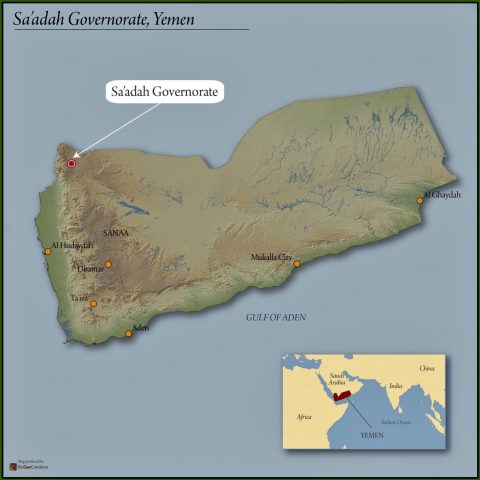
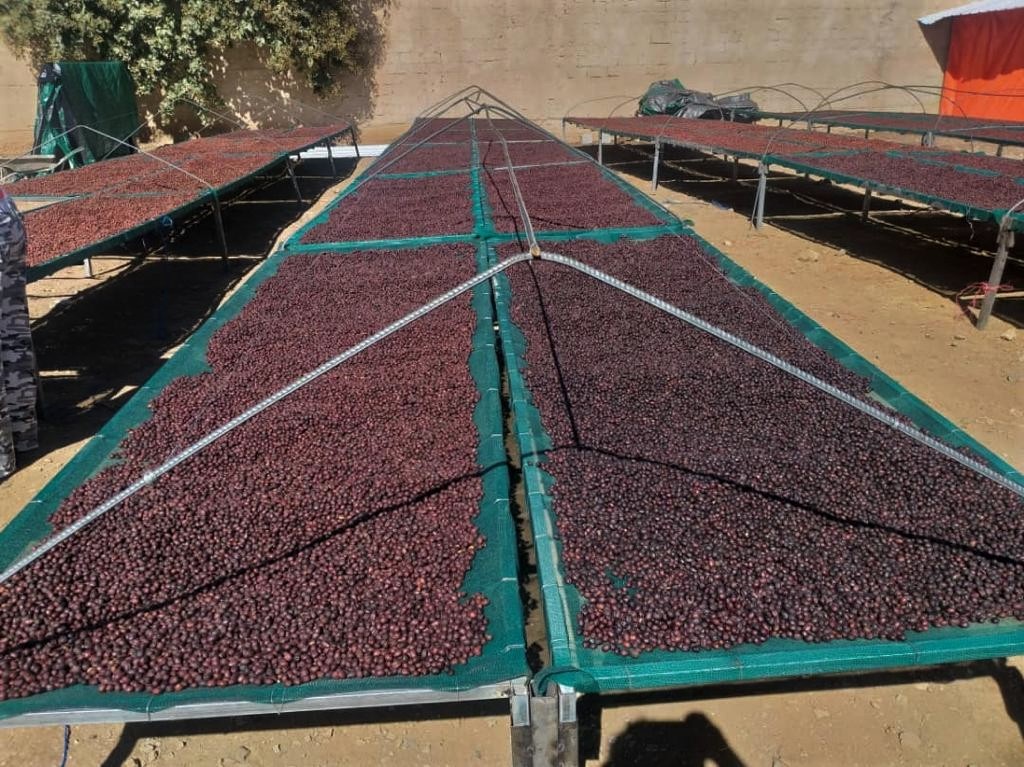
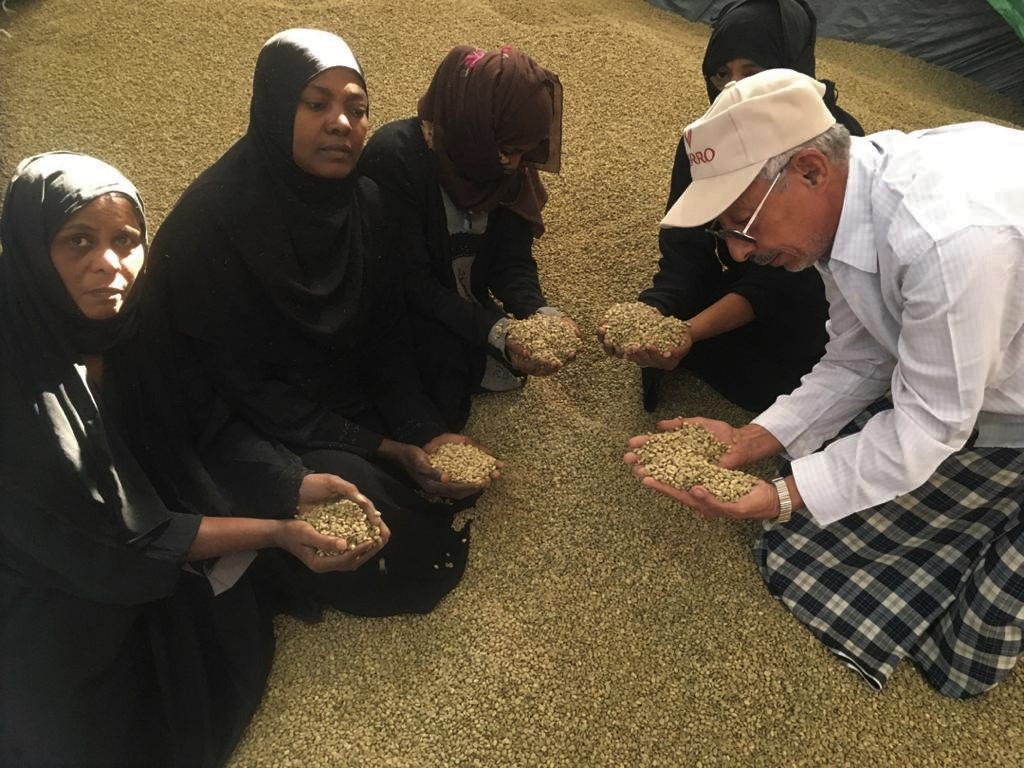
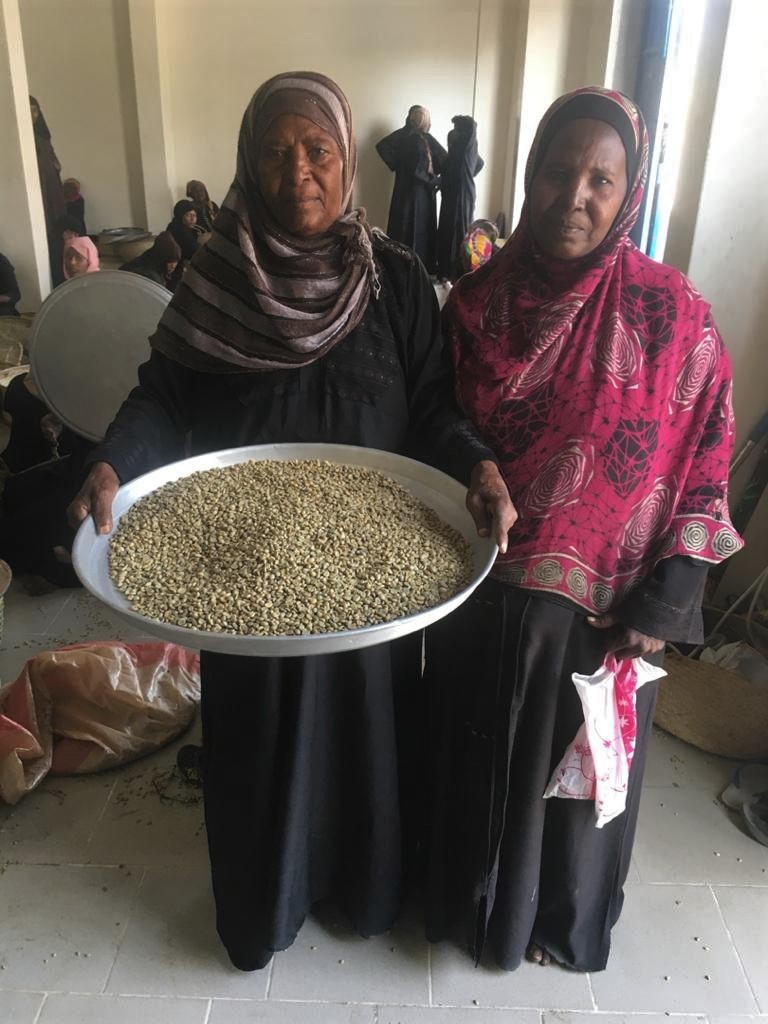

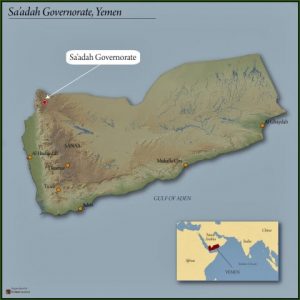
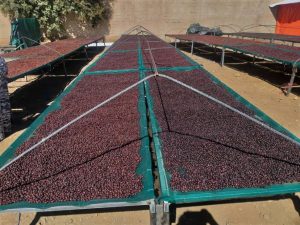
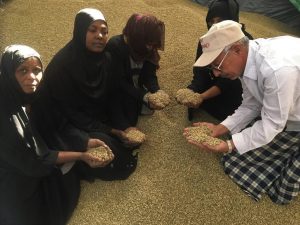
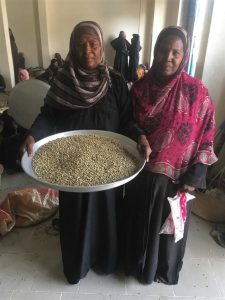





Reviews
There are no reviews yet.